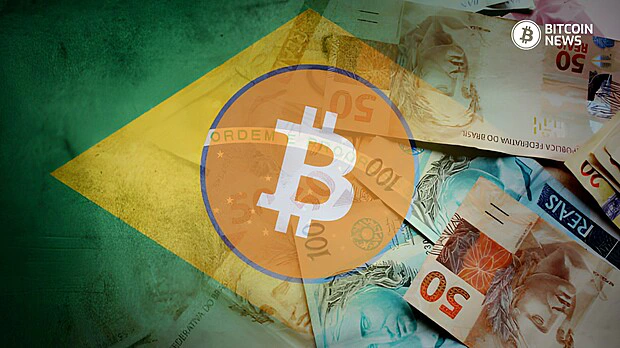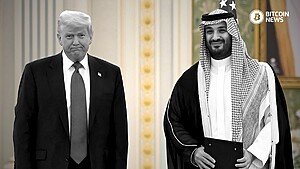Recent developments indicate that Brazil is increasingly positioning itself as a leader in Bitcoin and blockchain technology within the BRICS framework.
Members of the BRICS, composed of Brazil, Russia, India, China, Egypt and South Africa, view themselves as a counterbalance to the G7 in the global economy.
As BRICS nations increasingly look toward Bitcoin & digital currencies to create a new non-dollar based financial system, Brazil has a keen interest in understanding this evolving global financial landscape.
Tucked within the Official Gazette of the Union, the primary source for decisions of governmental bodies in Brazil, is evidence of this interest. Multiple government and Central Bank officials have been approved to attend Bitcoin focused conferences and maybe even bring back novel ideas.
Related: Continued De-dollarization Sparks Hopes For Bitcoin Dominance
Lucas Iten Teixeira, a coordinator within the Central Bank of Brazil’s Financial Citizenship Department, will participate in the 2024 AFI Global Policy Forum.
With this year’s AFI Global Policy Forum being hosted in El Salvador, that country’s adoption of Bitcoin is expected to be highlighted as a case study for how Bitcoin can drive financial inclusion, particularly in developing nations.
El Salvador’s adoption of bitcoin as legal tender is not just revolutionary, but a direct challenge to how the current financial system approaches monetary policy.
Denise Aboim Sande e Oliveira of the Central Bank of Brazil will attend the European Blockchain Conference, highlighting the country’s commitment to exploring blockchain technology.
This move aligns with global trends where governments are increasingly looking at blockchain technology to modernize financial infrastructure & find alternatives to the existing financial system.
Earlier in the year, José Medeiros from Brazil’s Ministry of Education attended Advancing Bitcoin 2024 in London — a conference geared toward developers building on Bitcoin.
This year’s conference involved key discussions focused on advancements in Bitcoin’s infrastructure, especially around Layer 2 scaling solutions and smart contracts.
His participation at this event points to Brazil’s interest in educating its population on how to build new financial primitives & tools on Bitcoin.
While attendance at these events by government & Central Bank officials may seem like a small step, it is a part of a trend toward gradual Bitcoin integration in the global financial system.
The Brazilian government is not only exploring Bitcoin and blockchain technology more broadly but also has a population that is highly enthusiastic about Bitcoin.
A survey previously conducted in partnership with Morning Consult showed that 48% of respondents in Brazil were in favor of making Bitcoin legal tender, similar to El Salvador.
If Bitcoin is to become the world’s preferred means of exchange and store of value, Brazil will undoubtedly play a key role in its ascendance.










